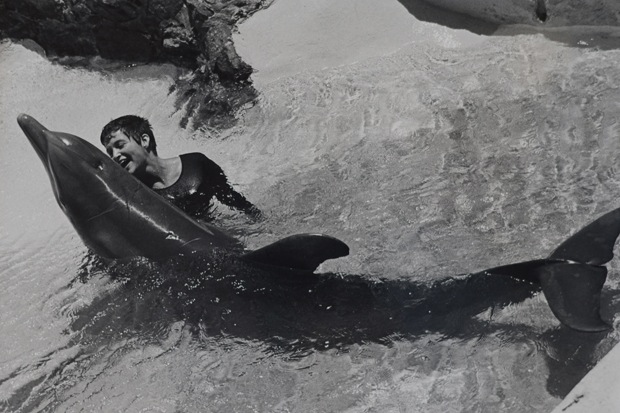When you see the opening caption ‘4.6 billion years ago’, it’s a pretty safe bet that you’re watching a programme presented by Professor Brian Cox. And so it proved again this week, as his latest exploration of the solar system began on BBC2, with an episode about Mercury and Venus.
Being an officially designated ‘landmark’ series, The Planets (Tuesday) has many of the features you’d expect: lush music, an impressive CGI budget, a ten-minute behind-the-scenes segment at the end. More surprising is Cox’s willingness to anthropomorphise the planets — and to regard the ones that aren’t lucky enough to be Earth with a touching level of sympathy. After all, it’s not their fault they’re so lifeless. Nor should we forget that some of them really did give it their best shot.
Admittedly, Cox started by walking through an Earth forest at its most biologically teeming — which felt a bit like rubbing it in the other planets’ faces. (Are you watching, Mercury?) But then, after he’d indisputably noted that Earth’s status as ‘the only living planet in an otherwise desolate solar system’ is ‘interesting when you think about it’, his compassion for those less fortunate than ourselves soon kicked in.
Take Mercury, for example. It might be ‘a small, tortured world’ now, yet only a few billion years ago it could have been a contender. The latest thinking is that Mercury first came together in the more promising region around Mars where it might have formed the kind of climate conducive to life. ‘But,’ said Cox dolefully, ‘it wasn’t to be.’ Instead, Mercury collided with other embryo planets, lost most of its outer crust and ended up too close to the Sun, where its small, tortured fate was sealed. And with that, Cox moved on to his next big question: ‘So where did it all go wrong for Venus?’
Oddly, Cox’s preferred term for a planet’s lost glory days was its ‘moment in the Sun’ — even though it turned out that being in the Sun was precisely what did for poor old Venus as well. For two billion years, it had all the water a new planet could reasonably want. But that was in the Sun’s youth, before it grew much hotter and fried the place.
In case any Earthlings watching were still tempted to feel smug, Cox now brought us some bad news of our own. While we may have had the longest sunny moment of the lot, it won’t last. In around five billion years, the sun will expand and the game will be up for all four terrestrial planets, leaving the life that flourished on one of them ‘a distant memory’ (although Cox didn’t specify whose memory that would be).
Despite the coming apocalypse, Cox remained as enthusiastic as ever on Tuesday — at least about how clever science is. Where he seemed rather less gung-ho than usual was about what’s known in the trade as the ‘grammar of television’. Only once did he stand on top of a mountain, and that was before the opening credits. He even appeared to be slightly going through the motions when he illustrated the gravitational pull of planets with the aid of a couple of rocks, his heart not quite in it the way it once was. Personally, I think I can make my peace with the Earth dying in five billion years. The idea of a world-weary Brian Cox, though, is surely hard to take.
Sky Atlantic’s Black Monday (Wednesday) is set on Wall Street in the period leading up to the biggest stockmarket crash in its history, on 19 October 1987. We first met the characters exactly a year before, when all was going well. So well, in fact, that the protagonist Mo (Don Cheadle) woke up in his Park Avenue apartment beside a five-grand-a-night hooker, before breakfasting on cocaine. He was then driven to his trading office where he addressed the staff with the inspiring words, ‘What goes into your pocket comes directly out of some other sucker’s asshole.’ In short, the programme takes the traditional screen attitude to 1980s Wall Street: look at how utterly despicable these people are — but hey, wouldn’t it be great to be one of them.
Black Monday is billed as a comedy. But, while it bristles with darkly funny one-liners — or sometimes 15-liners — it’s much harder to pin down than that. For one thing, there’s a proper dramatic plot, which on Wednesday came complete with a cracking twist. For another, the tone veers wildly between the mildly thoughtful and the cheerfully deranged. At this stage, I can’t even decide whether it’s meant to be a satire of Wall Street traders or a parody of the entire satire-of-Wall-Street-traders genre. But either way, it’s definitely a lot of fun to watch.






Comments